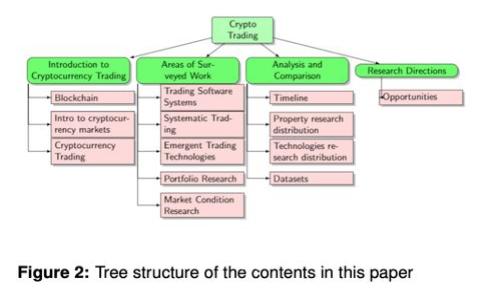引言 在现代商业环境中,物流和供应链管理是不可或缺的组成部分。随着全球化的加速和消费者需求的不断变化,企...
In recent years, cryptocurrency has gained significant attention globally, and Africa is no exception. The adoption of digital currencies and blockchain technology in Africa presents unique opportunities and challenges, reflecting diverse perspectives across different regions and demographics. This article delves into the continent's view on cryptocurrency, examining the factors driving its adoption, the regulatory landscape, challenges faced, and the societal implications of digital finance.
Africa is witnessing a burgeoning interest in cryptocurrency, driven by several factors that set it apart from other regions. One major factor is the continent's significant unbanked population. According to the World Bank, about 57% of adults in Sub-Saharan Africa do not have access to formal banking services. This presents a unique opportunity for cryptocurrencies to serve as an alternative means of conducting transactions and storing value.
Moreover, the high inflation rates in countries like Zimbabwe and Venezuela have led many to seek refuge in stable cryptocurrencies like Bitcoin. The desire for a more stable store of value in the face of hyperinflation has driven many Africans, particularly in economically unstable nations, to adopt digital currencies. Additionally, the younger demographic in Africa is tech-savvy, and mobile phone penetration continues to rise, making it easier for individuals to engage with cryptocurrencies.

The adoption of cryptocurrency in Africa opens up a plethora of opportunities for economic growth and financial inclusion. Remittances, which are a lifeline for many families across the continent, can be significantly reduced in cost through the use of digital currencies. Traditional remittance services often charge hefty fees, whereas cryptocurrencies can facilitate cross-border transactions at a fraction of the cost.
Furthermore, blockchain technology, which underpins most cryptocurrencies, can enhance transparency and efficiency in various sectors, including agriculture, healthcare, and supply chain management. For instance, using blockchain can help farmers track their products from farm to market, ensuring fair pricing and reducing fraud.
Investment opportunities also abound, as the crypto market grows. Africa has become a hotbed for crypto startups, with many entrepreneurs seeking to tap into the potential of decentralized finance (DeFi). This could lead to significant job creation and technological advancements on the continent.
Another significant challenge is the lack of infrastructure. Many African countries suffer from poor internet connectivity and technological infrastructure, limiting the accessibility of cryptocurrency platforms. This can create barriers for individuals looking to trade or invest in digital currencies, particularly in rural areas.
Additionally, issues related to security, fraud, and lack of financial literacy pose risks to potential investors. Scams and Ponzi schemes have emerged, leading to financial losses for many. Education and awareness about cryptocurrency are crucial to mitigate these risks and promote responsible investment.

The regulatory landscape for cryptocurrency in Africa is complex and evolving. Some countries have taken proactive steps to create frameworks for digital currencies, while others are hesitant or outright hostile. In South Africa, for example, the Financial Sector Conduct Authority (FSCA) is working on developing regulations that will govern cryptocurrency trading and protect consumers.
In Nigeria, the central bank has announced a digital currency, the eNaira, aiming to bring the benefits of blockchain technology while maintaining control over the financial system. This move reflects a growing recognition of the potential of digital currencies to enhance the existing financial infrastructure.
Conversely, countries with rigid regulatory environments could stifle innovation and push crypto activities underground, limiting the benefits that cryptocurrencies can bring. Striking a balance between regulation and innovation is essential for fostering a vibrant digital economy.
As cryptocurrency adoption spreads across Africa, there are significant societal implications to consider. On one hand, increased access to digital finance can empower marginalized communities, giving them tools to participate in the global economy. This could help reduce poverty levels and promote entrepreneurship among underserved populations.
However, there is also the risk of exacerbating inequalities if access to technology and education remains limited. Those who lack the skills or means to engage with digital currencies may be left behind, widening the gap between those who are financially literate and those who are not.
Moreover, the societal acceptance of cryptocurrency will depend on building trust within communities. Addressing misconceptions and fears surrounding digital currencies through education and awareness campaigns will be critical to increasing acceptance and usage.
Cryptocurrency offers numerous advantages for African nations. Firstly, it fosters financial inclusion, allowing those without access to traditional banking systems to participate in the economy. This can lead to increased economic activity and growth.
Secondly, cryptocurrency simplifies cross-border transactions, particularly for remittances, which are essential for many families. This reduces costs and enhances the speed of money transfers.
Thirdly, blockchain technology can improve transparency and efficiency in various sectors, ranging from agriculture to healthcare, by providing immutable ledgers that track transactions and ownership.
Finally, the growth of the crypto industry can stimulate job creation and attract foreign investment, ultimately contributing to economic development and technological advancement.
The approach to cryptocurrency regulation varies significantly among African countries. Nations like Nigeria and South Africa are taking proactive measures to regulate cryptocurrency transactions while promoting innovation. For example, Nigeria has launched its Central Bank Digital Currency (CBDC) to encourage digital transactions and improve the financial system.
In contrast, other countries, such as Morocco and Algeria, have adopted a much more conservative stance, banning the use of cryptocurrencies altogether. This uncertainty can create challenges for businesses operating in or across borders in these regions.
Countries that embrace a regulatory framework that supports cryptocurrencies while preventing fraud and protecting consumers may create a more favorable environment for growth and innovation in the sector.
Investing in cryptocurrencies in Africa carries several risks that potential investors should be aware of. Firstly, the regulatory uncertainty can lead to abrupt changes in the legality of crypto operations, potentially resulting in financial losses. Investors might not have the same protections available as they would in more regulated markets.
Secondly, the prevalence of scams and fraudulent schemes raises concerns. With many investors lacking understanding and education about cryptocurrencies, they become vulnerable to Ponzi schemes and other fraudulent activities.
Additionally, the volatility of digital currencies poses a significant risk, as prices can fluctuate dramatically. Investors must be prepared for the possibility of incurring significant financial losses, especially in a nascent market with limited liquidity.
Financial education is crucial for cryptocurrency adoption in Africa. It empowers individuals to make informed decisions, helping them understand the risks and benefits associated with digital currencies. Without a solid foundation in financial literacy, potential investors cannot critically evaluate investment opportunities, making them more susceptible to scams.
Furthermore, education encourages responsible use of cryptocurrencies and promotes awareness about security measures necessary to protect one’s assets. Initiatives focused on financial education can help break down barriers to adoption by demystifying cryptocurrency and enabling individuals to participate confidently in the digital economy.
In summary, the perspective on cryptocurrency in Africa is shaped by a multitude of factors, including the promise of financial inclusion, regulatory challenges, infrastructure limitations, and societal implications. By addressing these issues through education, thoughtful regulation, and innovation, Africa can harness the transformative potential of cryptocurrency to drive economic growth and improve the lives of its citizens.